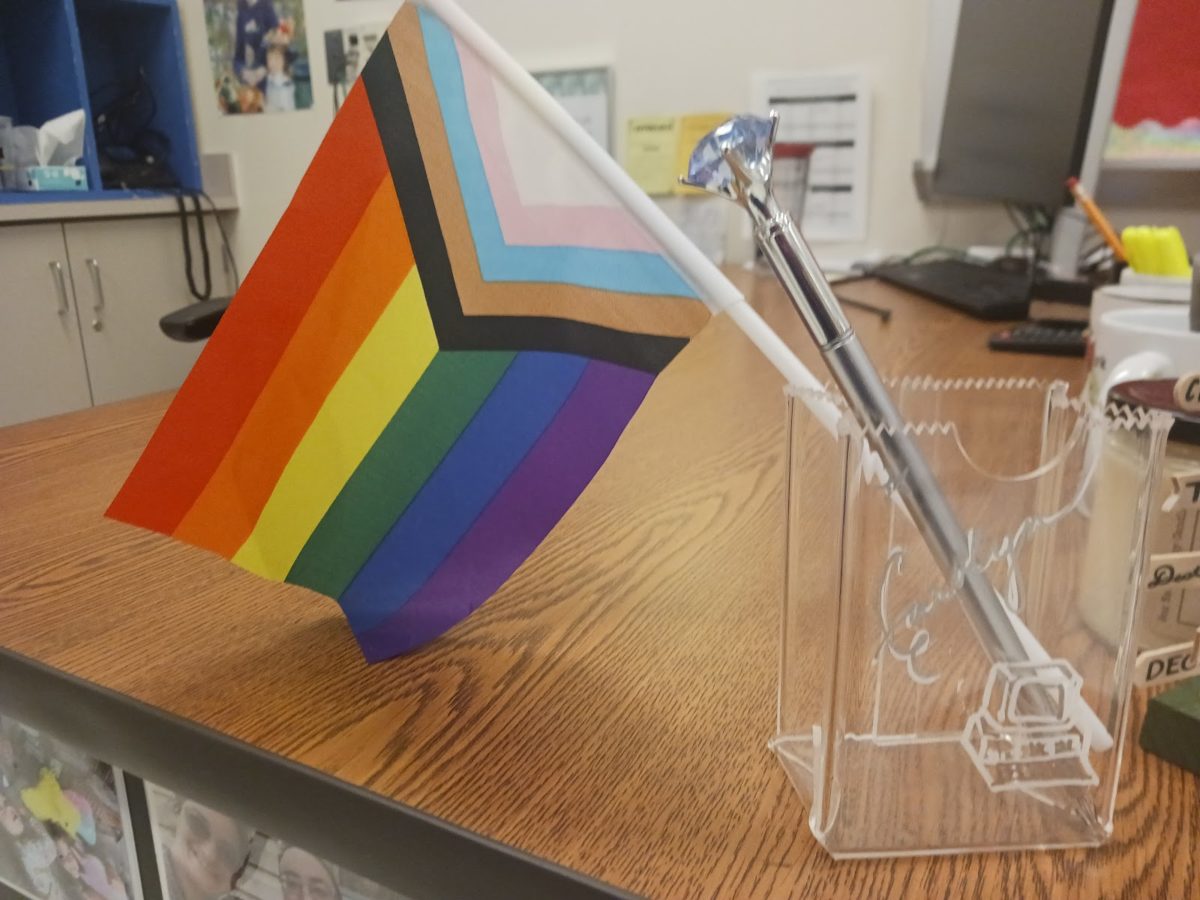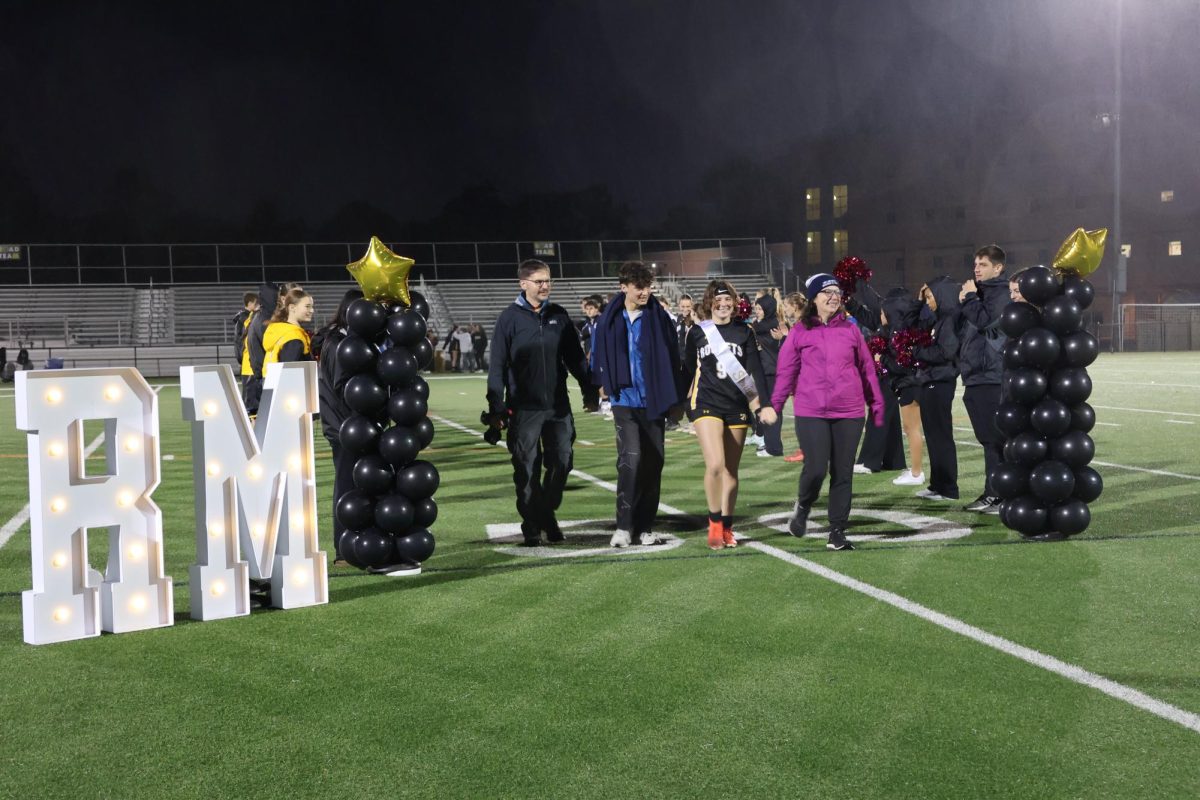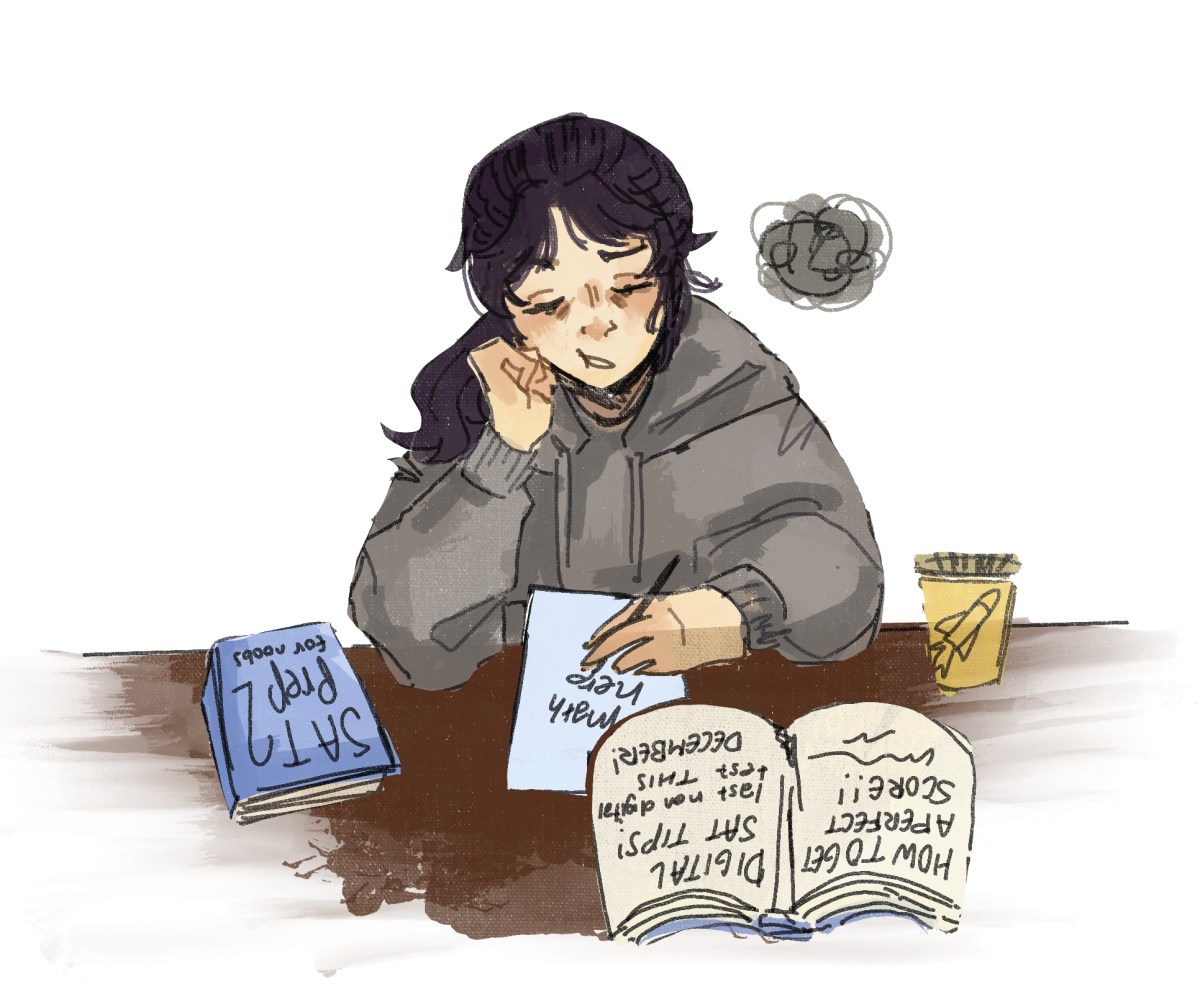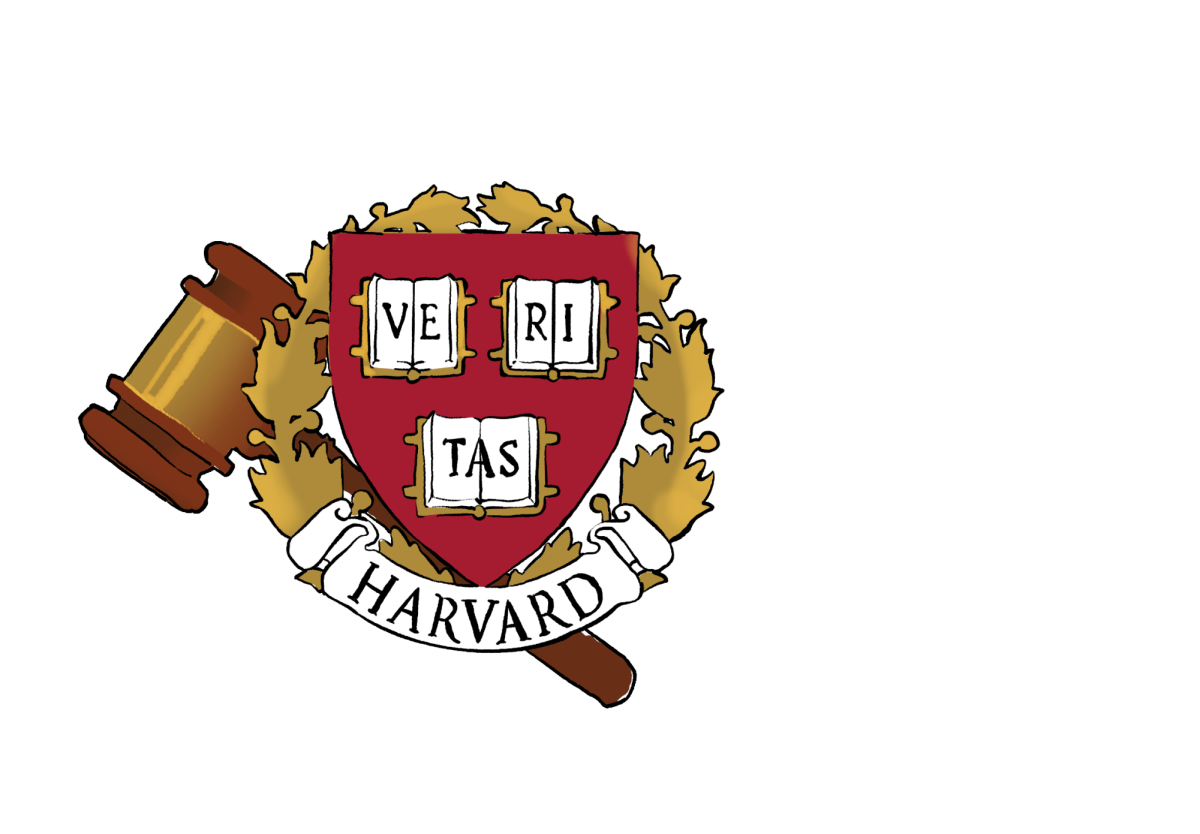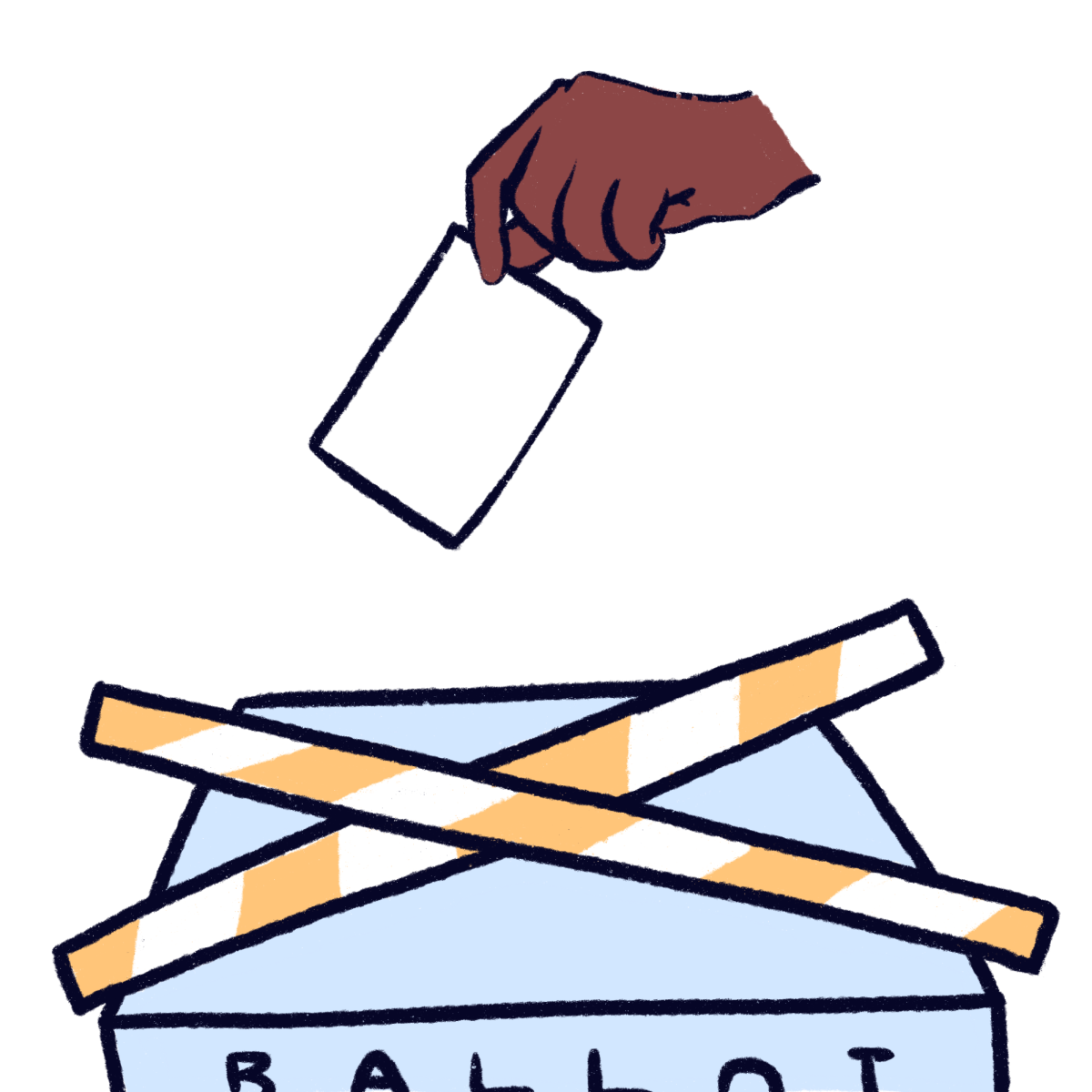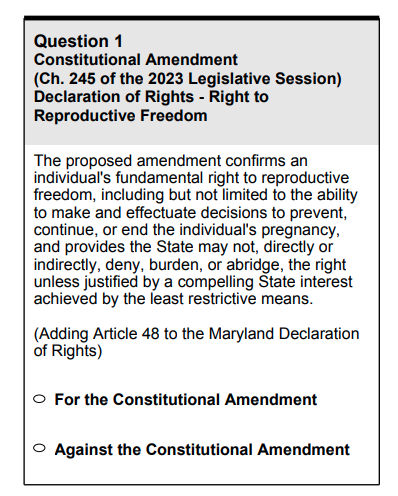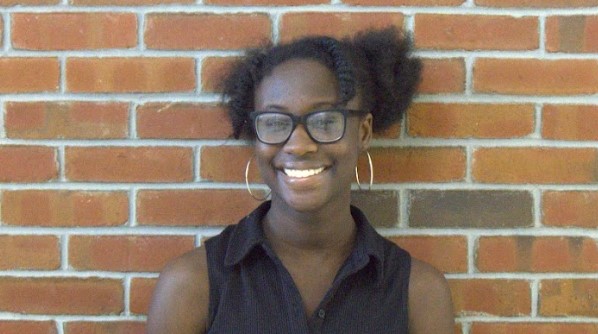For years, RM has been a community that strives for the inclusivity of all gender identities and sexualities. From the LGBTQ+ alliance club, to the first ever LGBTQ+ studies class in the nation held right in our building, our school and community pushes towards a safe and accepting place. Achieving this starts with the place and where students spend most of their day: the classroom.
English classes are areas of great influence through their connection to media and how consumers perceive the world around them. IB Language and Literature teacher, Grant Goldstein knows this and uses it to create an open environment where students can dive into both the content and themselves.
“I think it’s the most exciting part of my subject. Traditionally, students and adults have a perception of English and English literature as belonging to a certain group and a group that’s in power and a group that has the freedom to express themselves. I think starting to ask the questions about why certain people get to speak and why others don’t is the central question that we have in a language and literature class,” Mr. Goldstein said.
IB Language and Literature will be adding a new Shakespeare play to its eleventh grade class. Goldstein expressed his excitement for this addition to the curriculum.
“It’s a play that…in the way we read twenty-first century, foregrounds issues of gender and sexuality in a way that you don’t necessarily see in a tragedy like Hamlet. [Hamlet] is the text we’ve traditionally been reading,” Mr. Goldstein said.
It isn’t only English teachers that are adapting to their students. Science teachers, including forensic science teacher Karl Kovacs, reflect this in their teaching styles.
“I try really hard to represent all viewpoints [and] all vantage points. With Forensics, we’re always in the pursuit of truth and we always have to be very weary of our implicit biases that we all have. We recognize that they’re there; we recognize that it takes a conscious effort to keep them under control and so to speak, but really to not let any of that surface…zero tolerance for any intolerance,” Dr. Kovacs said.
Many teachers also try to be conscious of students in the language they use and the language they allow in the classroom. Dr. Kovacs spoke about his dedication to using respectful terminology and keeping derogatory language out of his classroom.
“I’m willing to be a risk taker and try [to] not just avoid pronouns—to actually take a moment to say it correctly [and] get it right.” Dr. Kovacs said.
The Social Studies department also strives to ensure all students are comfortable during class even though these actions are not specifically written in the curriculum. The Social Studies department also strives to ensure all students are comfortable during class. Even Kerri Fry, who teaches IB History and Theory of Knowledge, finds ways to tackle this in her class.
“I try to highlight particularly since I’m a female, looking at history through a gendered lens, highlighting women’s experiences in history [and] also LGBTQ+ perspectives and progress. My content in general focuses on rights, protests and independence…[and] the general idea of people [advocating] for their rights to be who they are,” Ms. Fry said.
Though society is slowly becoming more accepting towards its queer members, there are still social and political efforts made against them. The current generation of students is the future generation of adults. This makes it so important to cultivate comfortable environments for students of all kinds to step into the next stages of their lives with confidence in themselves and their identities.
“Seeing the students as humans I think is a super important thing because if you just see them as a number, then you’re not really going to make those hoops and that growth,” Ms. Fry said.


